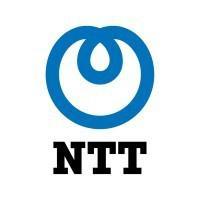
Amazon Virtual Private Cloud
Amazon Virtual Private Cloud (VPC) allows users to create a logically isolated virtual network within the AWS cloud, mimicking a traditional data center environment. Users can efficiently control IP address assignments, deploy subnets, and connect resources through gateways, enhancing security and scalability while managing traffic effectively across their infrastructure.
Top Amazon Virtual Private Cloud Alternatives
EdgeUno
Accessing Latin America’s most diverse and high-capacity regional network, this provider boasts a highly redundant architecture supported by a top-tier team.
Oracle Private Cloud Appliance
The Oracle Private Cloud Appliance streamlines application deployment with its built-in full-stack management and automated patching, significantly lowering OpEx for IT departments.
IONOS Cloud
IONOS Cloud offers an innovative Virtual Private Cloud (VPC) solution, designed for flexibility and scalability.
Oracle Virtual Cloud Network
The Oracle Virtual Cloud Network enables customers to tailor Virtual Cloud Networks (VCNs) to their specific IP address needs, utilizing private or public subnets.
Rackspace Managed Private Cloud
Rackspace Managed Private Cloud offers a tailored Virtual Private Cloud solution that combines the agility and cost-efficiency of public cloud with the security of a private environment.
IBM Cloud Virtual Private Cloud (VPC)
IBM Cloud Virtual Private Cloud (VPC) enables enterprises to create a secure, private network within the public cloud infrastructure.
AWS PrivateLink
It simplifies network architecture by connecting different AWS accounts and VPCs seamlessly, while also supporting...
Lumen Edge Private Cloud
This solution enhances application performance, simplifies IT management, and enforces security policies that adapt to...
Azure Virtual Network
It supports sophisticated network topologies and allows granular traffic control between subnets...
INAP Private Cloud
Tailored for small to medium workloads, it ensures high security through multi-segment logical separation, while...
Google Virtual Private Cloud (VPC)
It allows for the isolation of projects, expansion of IP space sans downtime, and centralized...
NTT Private Cloud
By facilitating seamless integration of AI and IoT, it empowers businesses to optimize operations, ensure...
IBM Cloud Private
It empowers administrators to manage cloud dynamics effectively, ensuring compliance with regulatory standards, all while...
Huawei Virtual Private Cloud
With customizable IP address ranges, subnets, and security groups, it supports seamless deployment of Elastic...
Tencent Cloud Virtual Private Cloud (VPC)
It supports hybrid cloud setups via VPN and Direct Connect, ensuring high availability with advanced...
Top Amazon Virtual Private Cloud Features
- Logically isolated virtual network
- Private and public IP address support
- Subnet creation and management
- Route tables for traffic direction
- VPC peering for resource sharing
- Internet and VPC endpoints
- Flow log for traffic monitoring
- Transit gateway for hub routing
- VPN connectivity to on-premises
- Default VPC for quick setup
- Elastic IP address allocation
- BYOIP (Bring Your Own IP)
- Managed service integration
- Traffic mirroring for inspection
- Multi-AZ subnet distribution
- AWS CLI and SDK support
- Query API for low-level access
- Cost-effective private IP addresses
- Automatic public IP assignment
- Security and monitoring appliance integration
Top Amazon Virtual Private Cloud Alternatives
- EdgeUno
- Oracle Private Cloud Appliance
- IONOS Cloud
- Oracle Virtual Cloud Network
- Rackspace Managed Private Cloud
- IBM Cloud Virtual Private Cloud (VPC)
- AWS PrivateLink
- Lumen Edge Private Cloud
- Azure Virtual Network
- INAP Private Cloud
- Google Virtual Private Cloud (VPC)
- NTT Private Cloud
- IBM Cloud Private
- Huawei Virtual Private Cloud
- Tencent Cloud Virtual Private Cloud (VPC)














